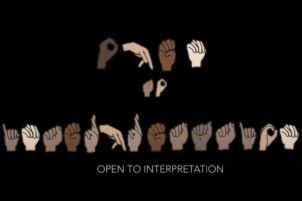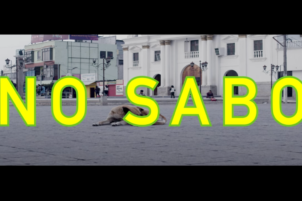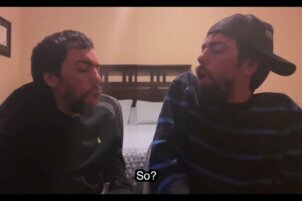Los Angeles, Feb. 10 – During this year’s 2021 Sundance Film Festival, many panels were hosted that detailed the ongoing changes surrounding disability and the industry. Of the many panels hosted, “The Nuts & Bolts of Producing Deaf Content & Working with Deaf Performers” directly emphasized the successes and work of deaf and hard of hearing individuals.
To ensure accessibility, the panel included ASL interpreters (for the hearing audience, as all panelists communicated through ASL) along with closed captioning. Hosted by RespectAbility Board Member Delbert Whetter, the panel was moderated by Delbert’s older brother and filmmaking partner Jevon Whetter, who wrote a script about an all-deaf track team led by a deaf coach in Oregon. One of the panelists, Troy Kotsur, is playing the role of the coach. Kotsur is an actor who has performed in many television roles and can most recently be seen in Disney Plus’ The Mandalorian, for which he also choreographed an invented form of sign language, as well as the Sundance hit CODA.
Accompanying Kotsur on the panel included Anne Tomasetti, a nationally Certified Deaf Interpreter and ASL Coach and Consultant, and CJ Jones, a deaf actor, director, comedian, and all-around cultural icon who can be seen in Edgar Wright’s Baby Driver. These brilliant creatives discussed the issues associated with producing deaf content and working with deaf actors.
One of the important facets of authentic representation and casting is adequately capturing the culture of each unique disability. With the deaf and hard of hearing community comes the necessity of having both ASL and deaf culture properly represented in mass media.
When the question of “What is to be done?” was raised, the panelists agreed that education is the first step toward ensuring an equitable environment for deaf performers. Jones recalled his work with Baby Driver director Edgar Wright and explained how he instructed and educated Wright on the process of communication and properly capturing ASL. “I taught [Wright] while we were filming. I taught him without the use of an interpreter, how to communicate. And he realized at that time that it was challenging but at the same time, I wanted him to see the authenticity of the actor,” commented Jones.
Kotsur agreed and emphasized the importance of producers and directors gaining first-hand experience with deaf culture. “It’s really important that a director takes their time and does the research and not just bring in an interpreter and rely on them to really be a full-fledged part,” Kotsur argued. A key part of creating a more equitable media landscape for people with disabilities is not just involving them in production, but also valuing their experiences and engaging with them culturally.
The discussion then veered into the visual components of ASL and how its movement is reproduced onscreen. During her time on the set on CODA, Tomasetti praised the crew for their investment and involvement in capturing signing idiosyncrasies.
Tomasetti noted the significance of the Deaf ASL Consultants who work with writers and directors to promote seamless understanding and creative continuity between talent and production crews. Tomasetti recounted her work on CODA and her role in translating the written script into ASL in a manner that fully represented the written lines. She commented, “We did have some nights where we would get together, just the deaf talent and the crew, and we would get together with the deaf actors and we’d work on their translations…. [so that] they felt comfortable with their performances and the language in front of the camera.”
The panelists were asked to provide anecdotes about any difficulties they have encountered with using interpreters on set. Kotsur described a situation he faced on the set of Criminal Minds, where the crew was unsure about how to communicate with him while he was driving. Kotsur himself provided a solution, informing the crew that his interpreter could sit in the back seat and sign to him via the rearview mirror. He noted that often times, given their life experiences, deaf actors are able to suggest solutions to problems that hearing crew may not know how to address, thereby empowering deaf performers to become essential players in the production process.
Tomasetti expanded upon this and talked about the importance of flexibility to overcome gaps in communication. She referred to a specific instance that required filming in the dark. “[The crew] wanted to make sure that the deaf eyes had access at nighttime. So, they created some sort of contraption that went around the interpreter and it had this light that would shine on them, so when it was dark, they were able to see the light shine on the interpreter,” elucidated Tomasetti.
Ultimately, Jones opined on the importance of not just discussing inclusion, but actively and passionately pursuing it. Drawing from his own intersectional experiences, Jones cites the success Black talent has achieved through collaboration and mutual support. Jones added, “The Black community is doing that, they’re successful in their work. The disabled and deaf communities need to continue to be persistent and show and grow and make support and support each other in this journey. That’s when the bar gets raised but remember, keep barking, keep barking.” A call to arms for those who sign.
Overall, it was an informative panel filled with speakers and experts who are ensuring that the future of media is more accessible to all. Hopefully, these practices become the norm and the vast pool of both deaf performers and crew will gain increased access to opportunities.







